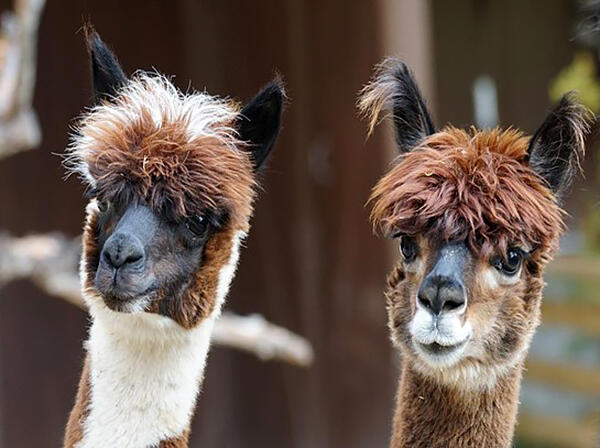The research group of Professor Akifumi Takaori-Kondo of the Graduate School of Medicine at Kyoto University, Specially Appointed Professor Keiichi Namba and full-time Specially Appointed Assistant Professor Junso Fujita of the Graduate School of Frontier Biosciences at Osaka University, and COGNANO, Inc., in collaborative research with research groups from the Osaka University Center for Infectious Disease Education and Research and the Research Institute for Microbial Diseases, Yokohama City University, and The University of Tokyo, used alpacas, which are herbivores of the camelid family, to create nanobody antibodies that have more neutralizing activity against all COVID-19 variants, including Omicron, than any therapeutic antibody formulation that has been used to date. The research was published in Communications Biology.

The COVID-19 virus infects a person when the surface of the spike protein binds to the ACE2 receptor. The binding site of this receptor is called the receptor binding domain (RBD), and neutralizing antibodies (vaccine immunization serum and human therapeutic antibodies) inhibit viral infection by binding to the RBD.
The VHH (Variable region of the Heavy chain of a Heavy chain only antibody) in alpacas are made of heavy chain dimers, and, because they are small at 15kDa compared to the 150kDa of human antibodies, alpaca VHHs can recognize spaces that cannot be entered by normal antibodies, and with monomers they can be easily modified into dimers and trimers, etc. Additionally, their single genetic information makes them easy to handle, and not only is it possible to obtain a VHH antibody library, but they are also chemically stable and can be mass-produced at low costs.
The research group injected human antigens into alpacas, collected lymphocytes, created phage libraries from the lymphocytes, expressed phage VHHs using E. coli, and then concentrated the binding clones by more than 1,000-fold. The genetic information was then read by a next-generation sequencer and a computer analysis was performed to produce a huge and diverse VHH library.
From there, 16 VHH antibodies that specifically bind to the spike protein were generated. Six clones that showed spike protein binding via FACS were subjected to an infection neutralization test, and two clones with high efficiency were selected. Cryo-electron microscopy was used to confirm how the obtained clones were bound to the spike protein, and it was found that the P86 clone binds to gaps in the spike protein, which human antibodies cannot enter, thereby preventing the virus from bonding.
According to Takaori-Kondo, "We selected the good clones from 20 million antibody clones. The P86 clone is effective against COVID-19 variants other than Delta, while P17 is effective against Delta but is less effective against Beta. By constructing this library, we will be able to quickly create effective antibodies even if a new COVID-19 variant appears. In the future we hope to connect this research to clinical applications after conducting experiments using monkeys."
This article has been translated by JST with permission from The Science News Ltd.(https://sci-news.co.jp/). Unauthorized reproduction of the article and photographs is prohibited.




